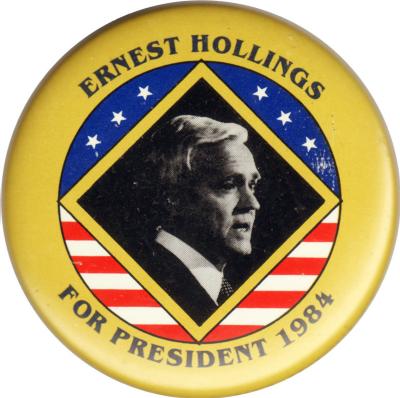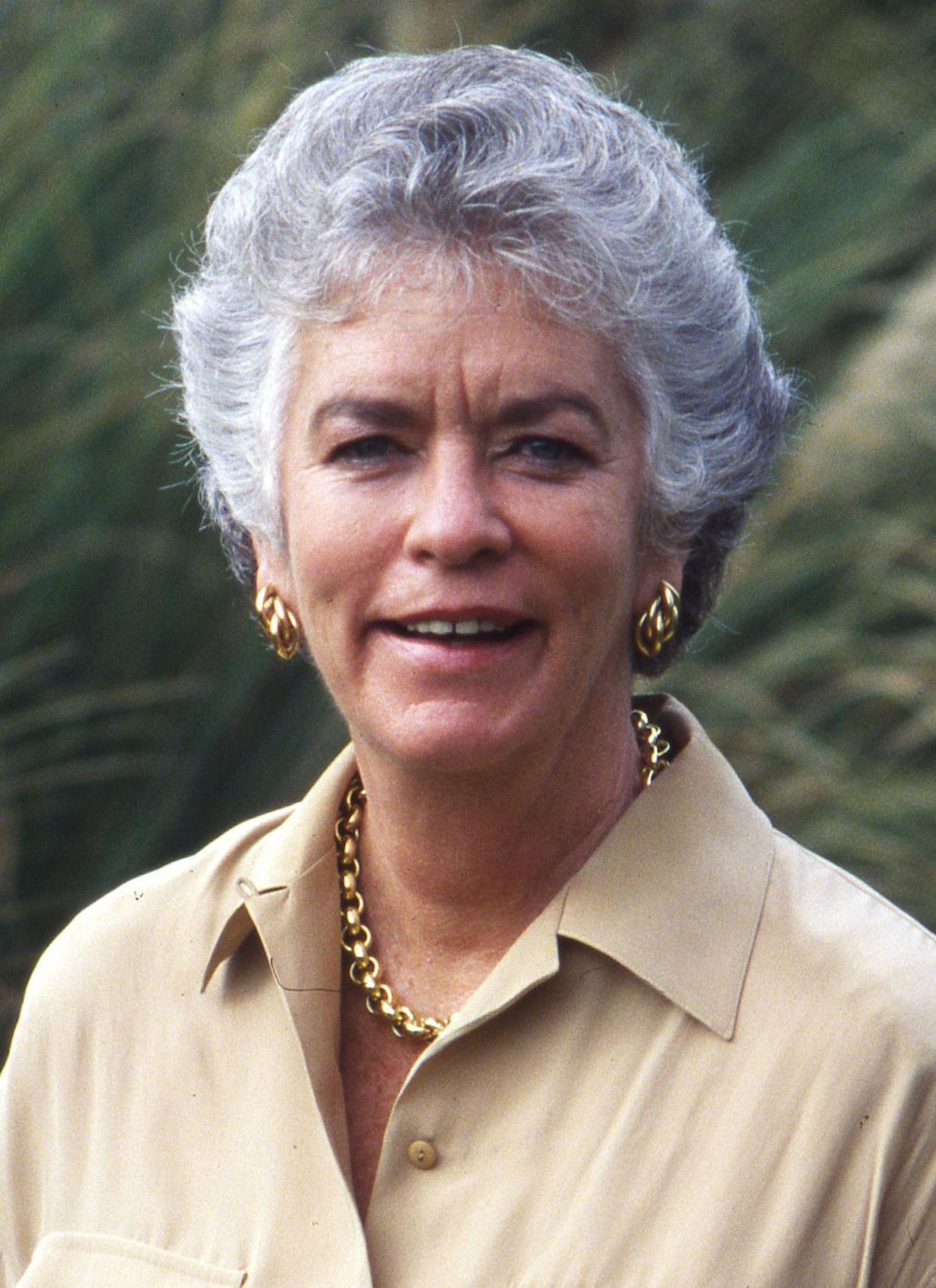 One fact of life as we grow older is how the passing of friends and colleagues forces us to reflect on past experiences. This past Friday, I recalled one of the more interesting phases of my career with the announcement former South Carolina Senator Ernest “Fritz” Hollings had died at the age of 97. As I have mentioned a couple of times on this blog, I had the opportunity to serve as director of operations for the Senator’s 1984 presidential campaign. In his memory, I want to share one of the more memorable episodes in this short-lived drama.
One fact of life as we grow older is how the passing of friends and colleagues forces us to reflect on past experiences. This past Friday, I recalled one of the more interesting phases of my career with the announcement former South Carolina Senator Ernest “Fritz” Hollings had died at the age of 97. As I have mentioned a couple of times on this blog, I had the opportunity to serve as director of operations for the Senator’s 1984 presidential campaign. In his memory, I want to share one of the more memorable episodes in this short-lived drama.
To gin up support and publicity prior to the New Hampshire primary, we scheduled the aviation equivalent of a “whistlestop” tour. On a single day, Hollings would land at various airports across the Granite State and deliver a campaign speech. At each stop a stage and bleachers were set up inside a hangar.
Senator Hollings had many assets. However, elocution was not one of them. His thick southern accent may have played well in his home state of South Carolina, but we thought New Hampshire might be another story. The speech writers did their best to scrub the text of Dixie-ish colloquialisms which meant nothing to or might even baffle the target audience. Additionally, Hollings barely moved his lips when speaking. If you did not know better, you might think he was auditioning to be a ventriloquist, not running for the nation’s highest office.
Keep in mind this was 1984. There were no cell phones or Internet. And there was no live coverage of the tour. Therefore, those of us who remained back at headquarters had no real-time access to the events on the ground. We anxiously awaited a report when the campaign director returned to work the next morning. “Disaster” was all he could say. He asked us to imagine the candidate’s amplified drawl echoing off the corrugated steel walls of an airport hangar. Then he played a tape. Even those who had worked on the Senator’s remarks could not decipher their own words.
 Which brings me to part two of this story. If you think the candidate or the campaign manager is in charge of a political contest, think again. In our case, the driving force behind Hollings run for the White House was his wife Rita, more affectionately known as “Peatsy.” The morning after the New Hampshire “massacre,” Mrs. Hollings was in our office. It’s been more than 35 years; so I can only do my best to recall the conversation but here is the essence.
Which brings me to part two of this story. If you think the candidate or the campaign manager is in charge of a political contest, think again. In our case, the driving force behind Hollings run for the White House was his wife Rita, more affectionately known as “Peatsy.” The morning after the New Hampshire “massacre,” Mrs. Hollings was in our office. It’s been more than 35 years; so I can only do my best to recall the conversation but here is the essence.
Flying back to DC, I told Fritz, “We’re going to get you a speech coach.” Of course, he resisted. But I told him either to do this or shut down the campaign. Finally he agreed, if and only if, the sessions took place at our home and no one else was there. And no one was ever to know about this.
On that day, I learned the Hollings for President campaign might as well have been a five act Shakespeare tragedy in which the “moment of illumination” came in Act III. We were already short on cash, staff salaries had been reduced and now we were going to pay for an elocution tutor. No need to read ahead to Act V to figure out how this drama would end. And end it did, the day after the New Hampshire primary having placed sixth with 3.54 percent of the vote.
Yet, one cannot help but imagine a political “bizarro world” where those dollars proved to be the turning point in Hollings’ quest for the oval office. Perhaps Tom Hooper (director) and David Seidler (screenplay) would have won an Academy Award for “The President’s Speech.” As described on IMDB, “The story of Fritz Hollings, his impromptu ascension to the White House in 1984, and the speech therapist who helped the unsure candidate overcome his Southern accent.”
For what it’s worth.
Dr. ESP
I actually laughed out loud at this one. Usually I want to cry!!
We can laugh about it now, but at the time, the campaign failed to see any humor in it.
A very fine piece. I respected Fritz Hollings.